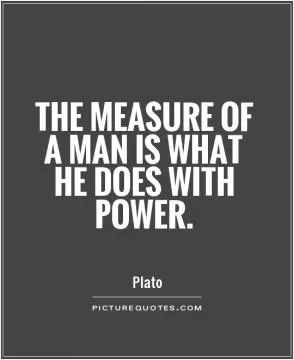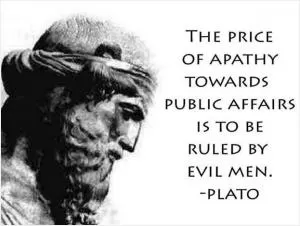The blame is his who chooses: God is blameless

The blame is his who chooses: God is blameless
In the context of Plato's philosophy, the statement "The blame is his who chooses: God is blameless" holds significant meaning. Plato believed in the concept of free will and the power of choice. He argued that individuals have the ability to make choices and decisions that shape their lives and ultimately determine their fate. In this sense, the responsibility for one's actions lies solely with the individual who makes the choice.Plato's idea of free will is closely tied to his belief in the existence of a higher power or divine being, which he often referred to as God. According to Plato, God is the ultimate source of all goodness and perfection, and is therefore blameless. In other words, God is not responsible for the choices and actions of individuals, as they have been given the gift of free will to make their own decisions.
The statement "The blame is his who chooses: God is blameless" reflects Plato's belief in the moral agency of individuals. It emphasizes the importance of personal responsibility and accountability for one's actions. By choosing to act in a certain way, individuals are taking ownership of their decisions and must accept the consequences that follow.
Plato's philosophy also suggests that individuals have the power to align themselves with the divine will of God through their choices and actions. By making virtuous and moral decisions, individuals can strive to live in harmony with the divine order of the universe. In this way, they can transcend their earthly desires and achieve a higher state of being.
Overall, the statement "The blame is his who chooses: God is blameless" encapsulates Plato's belief in the interconnectedness of free will, personal responsibility, and divine providence. It serves as a reminder that individuals have the power to shape their own destinies through the choices they make, and that ultimately, they alone are accountable for their actions.












 Friendship Quotes
Friendship Quotes Love Quotes
Love Quotes Life Quotes
Life Quotes Funny Quotes
Funny Quotes Motivational Quotes
Motivational Quotes Inspirational Quotes
Inspirational Quotes